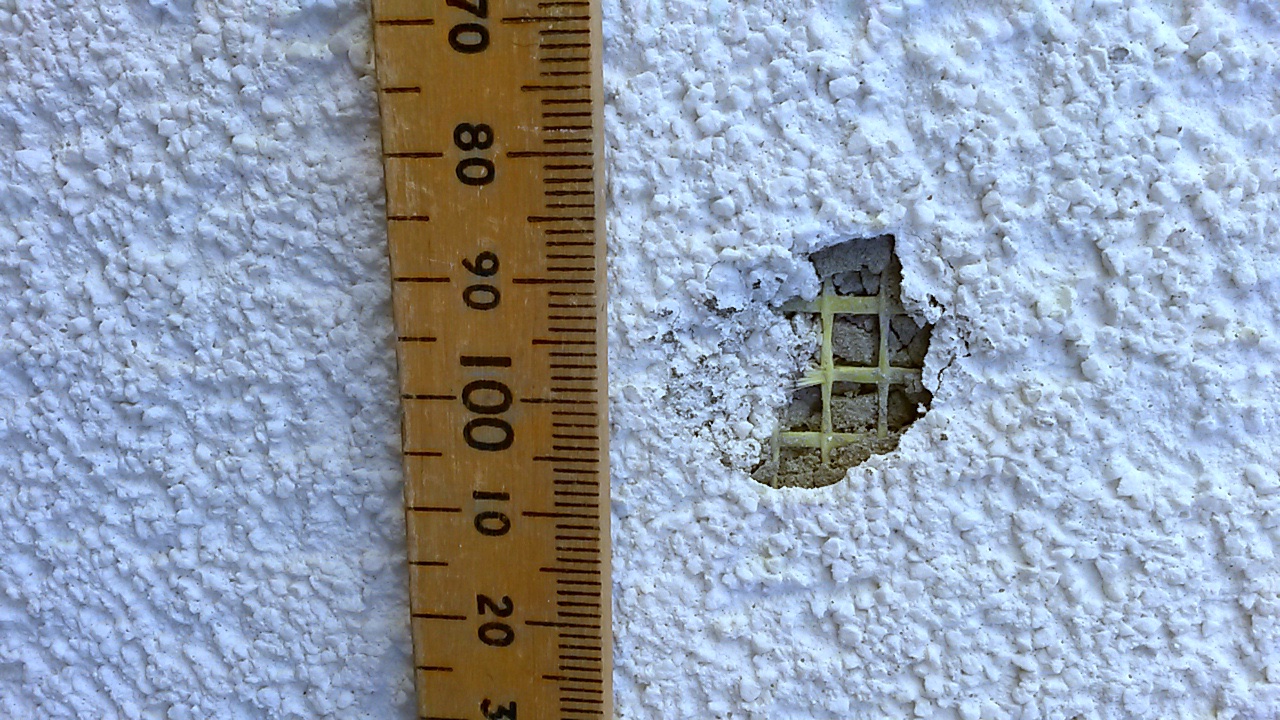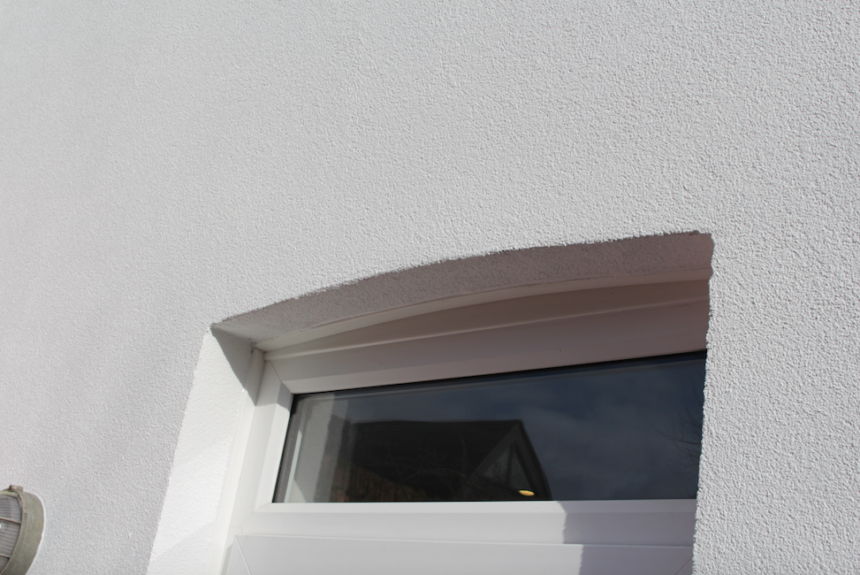Why 50mm of External Solid Wall Insulation is Just Not Enough
As you can imagine, we get a huge amount of interest in solid wall insulation, especially since the launch of the Government GDHIF scheme which provides generous grants to help cover the cost of the works (up to 67% of the total cost!).
What people are often surprised to find out when they get in touch with us is that we recommend installing 100mm of insulation to the wall. Many people assume that 50mm or less will be more than sufficient to lower their energy bills.
Well in a way they are correct – it will lower their bills, however we are about to show you why 50mm is never enough!

Why not just insulate with 50mm of insulation?
Using 50mm of EPS insulation does improve the U-Value a huge amount – as a reminder the U-value is simply a measure of heat loss through an object, the lower the value the better in terms of thermal efficiency.
Solid brick walls have a U-value of around 2.1-3W/m² and adding 50mm of expanded polystyrene (EPS) will take the U-value down to 0.5W/m²k, which is a substantial improvement, but 100mm takes it down to just 0.27W/m2k.
A new cavity wall built today must be built to a u-value of 0.3W/m2k which means if you retrospectively add just 50mm of EPS insulation it won’t be sufficient to adhere to building regulations. If 25% of the external wall is being insulated you MUST adhere to building regulations, therefore you are legally obliged to go for this larger thickness. In addition, if insulation is being installed under the GDHIF scheme, then it must adhere to building regs, so if someone has installed 50mm of insulation on your home it is worth getting in touch of them to make sure they come and do it correctly!!
But aside from building regulations, why else would you go thicker?
Well obviously the thicker the insulation the greater the savings, so 100mm of insulation will provide bigger energy savings than 50mm of insulation. With 50mm of insulation you should expect to see a reduction in your heating bills by around 30%, but with 100mm that percentage will shoot to over 50%. Your heating system won’t have to work as hard, and as a result won’t use as much gas – so more cash in your pocket! Especially great in the current energy crisis!
50mm vs 100mm – the cost
Obviously that is a pretty significant improvement on the energy bills savings, but many people’s counter argument to this is that 100mm of insulation will be so much more expensive!
Well, while thinner insulation is cheaper to buy, if you break down the costs of the solid wall insulation works, you will soon see the difference is price is very marginal. All EPS insulation gets attached to the wall in the same way – so both 50mm and 100mm thick EPS still get attached to the walls in the same way, they get the same reinforcement layer and the same render finish. You will still require the same scaffolding and both will use the same amount of labour!
On a £8,000 job you might only end up paying £200 more to install 100mm over 50mm – so really based on the energy savings, we really do recommend going for the thicker insulation!
50mm vs 100mm – the comfort
We can talk about the savings and costs of the different systems until the cows come home, but a lot of potential customers are purely interested in the increased comfort levels.
Would it be worth the extra width and cost for the added comfort, or is the difference minimal? To look at this you need to take the property as a whole. Previous to any external solid wall insulation, most properties suffer from hot and cold spots throughout the property – this is caused by the heat from the heating system, rapidly leaving the property in certain areas.
Applying 50mm of external solid wall insulation helps reduce the likelihood of these hot and cold spots. However, due to the thickness only being 50mm there is still a chance of cold bridging, which is the main cause of cold spots within the home. Cold bridging is caused by areas of a higher U-Value. With 100mm, these spots are almost always completely covered, meaning that you are always warm and the house remains a constant, comfortable temperature!
Should you always go for 100mm then?
In some cases, 100mm is just not going to be viable. If you have a path running by the side of your house for example, 100mm may make it too thin to walk up and down or get a car up. In this case you will obviously need to use less, but in these circumstances we recommend using a product that is more thermally efficient, so you are still achieving the same u-values, just with a thinner amount of material – for example XPS instead of EPS.
You might think having read this that we would be advocates of installing more than 100mm, well strangely enough we aren’t – or at least we aren’t in some circumstances. 100mm can be installed without having any real impact on the amount of light entering the property, but as you start going above this then it does start becoming an issue. Obviously 150mm will produce larger energy savings, and so for walls with few or no windows then it may well be worth considering, but in many cases 100mm will more than suffice. In Europe 150mm is becoming the standard, but they do have much harsher winters, and in the British climate the savings just aren’t that great for most properties.
Insulating previously insulted properties
It has been interesting to see how solid wall insulation has evolved though. In Eastern European countries, that are obviously treated to slightly harsher weather conditions compared to us here in the UK, a new insulation industry is now booming where homes that have previously been insulated with 50mm are being retrofitted with a further 50-100mm of insulation. It seems sensible that we make the jump now and make 100mm the industry standard so this doesn’t occur here in the UK in the future!















No comments yet